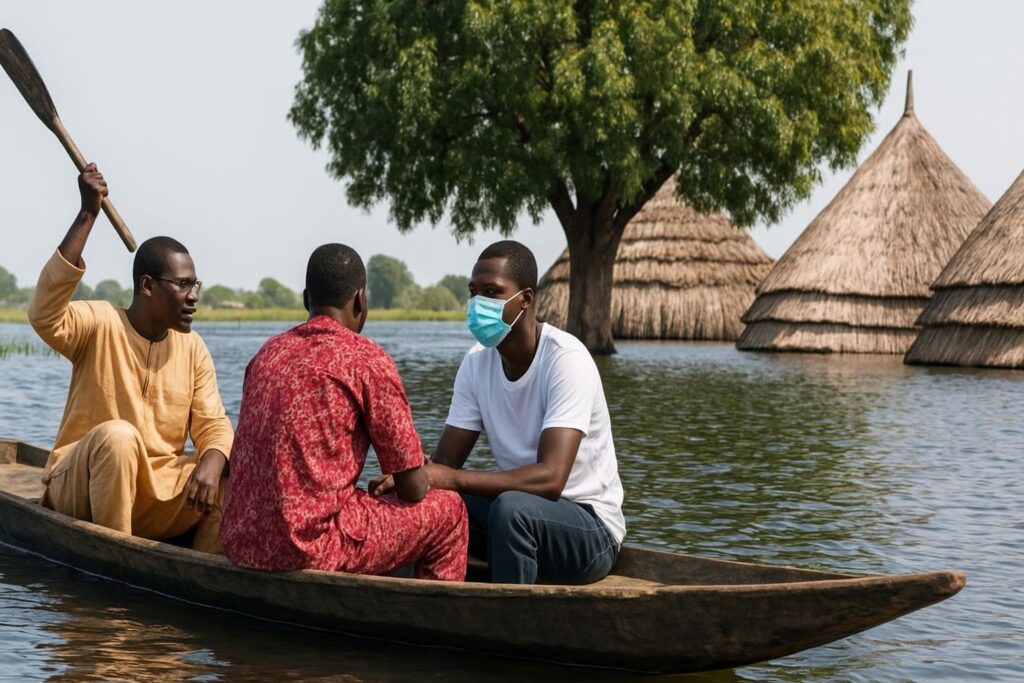Rains Continue to Pound the Nile Basin
Meteorologists at the Juba weather centre logged 230 millimetres of rain within seven days, the highest weekly total since records began in 2010, underscoring a volatile climate pattern shaping the Upper Nile region.
State broadcaster SSBC showed aerial footage of entire villages ringed by brown water, with corrugated iron roofs poking above the surface like islands. Local officials estimate at least 40,000 people have been affected so far.
Farming Heartlands Underwater
In Pochalla South County, Information Minister Jacob Werchum reported that three days of uninterrupted rain submerged sorghum and maize fields that were nearing harvest, signalling a looming cereal deficit.
Farmers who rely on flood-recession agriculture fear a repeat of 2021, when similar inundations cut yields by 35 percent, according to the national statistics bureau.
Urban Centres Paralysed
Juba’s low-lying suburbs of Gudele and Hai Referendum turned into canals, forcing minibuses to halt and prompting schools such as Eloi Secondary to close after classrooms filled with knee-deep water.
Shopkeeper Nyaboth Laku said sales dropped to zero for two days: “Customers cannot wade through water carrying groceries.” City engineers admitted drainage upgrades lag behind rapid urban expansion.
Health Risks Mount
Unity State health director Peter Gatwech recorded a sharp rise in malaria, water-borne diseases and snakebites in Nyal and Ganyliel, where health posts now operate from makeshift tents on higher ground.
The World Health Organization warned that stagnant pools provide perfect breeding sites for mosquitoes and vowed to rush antimalarial drugs and treated nets.
Government and Partners Mobilise
Humanitarian Affairs Minister Albino Akol told reporters that the cabinet has approved emergency funds for new dykes and water channels, aiming to shield densely populated zones before heavier rains forecast for September.
Commissioner Majok Bol Mani appealed for additional food and medical supplies, noting that six consecutive years of floods have eroded community resilience. UN agencies have begun air-dropping high-energy biscuits to isolated hamlets.


